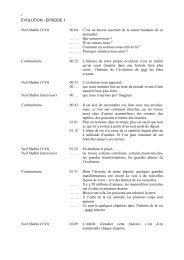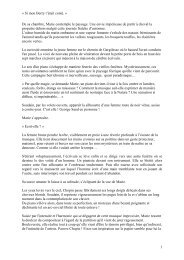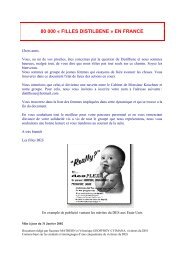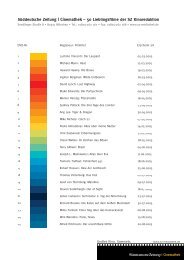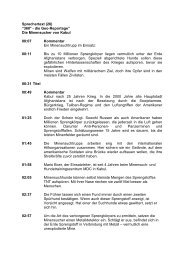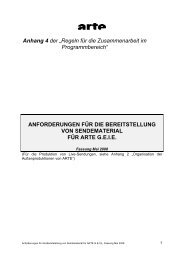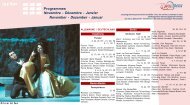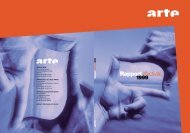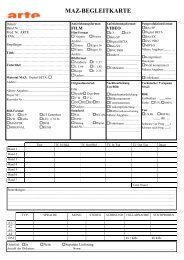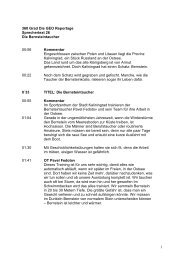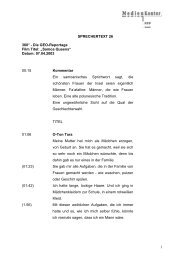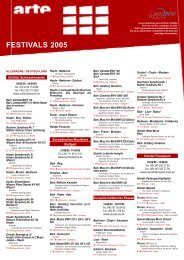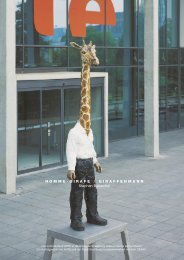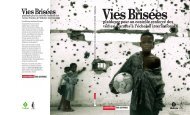POPs IN AFRICA HAZARDOUS WASTE TRADE 1980 - 2000 ... - Arte
POPs IN AFRICA HAZARDOUS WASTE TRADE 1980 - 2000 ... - Arte
POPs IN AFRICA HAZARDOUS WASTE TRADE 1980 - 2000 ... - Arte
Create successful ePaper yourself
Turn your PDF publications into a flip-book with our unique Google optimized e-Paper software.
• Lindaco Ltd., Delaware, U.S. Lindaco, formed in March 1988<br />
by A. Robert Zeff, was the U.S. broker in this venture and was to<br />
have been responsible for shipping over 4 million tons of wastes<br />
from the U.S. to Guinea Bissau. A Detroit News article describes<br />
Zeff as “a Detroit lawyer with a background in oil and gambling<br />
but not in running a waste company.”<br />
• Processamento de Residuos Industrias of Portugal, was to<br />
have been responsible for the offloading and final disposal of the<br />
wastes in Guinea Bissau.<br />
According to a Lisbon radio report on April 14, 1988, wastes<br />
would also have been imported from Australia.<br />
In an April 1988 letter to the U.S. State Department, Guinea<br />
Bissau’s minister of natural resources wrote that, “an ‘agreement<br />
in principle’ for the receipt of wastes was signed between our<br />
government and two European agencies/firms of export; one of<br />
them being associated with an American export agency.” The<br />
minister said that his government would grant final consent to<br />
receive the wastes once a technical study on this project was<br />
completed, and asked for technical information and assistance<br />
from the U.S. Environmental Protection Agency.<br />
In early 1988 Guinea Bissau’s health minister, Andre Atchade,<br />
sent a confidential memo warning his President that waste import<br />
schemes represented “a real threat to the security of our resources<br />
and people.” He also noted that “even a small rumor of pollution<br />
would be sufficient to hit our tourist industry.”<br />
In May 1988, international aid workers in Guinea Bissau<br />
obtained contracts and other official documents related to this<br />
deal. The documents were distributed by European<br />
Parliamentarian François Roelants du Vivier, and the scheme was<br />
immediately decried by numerous environmental groups and by<br />
European and African government officials.<br />
In a mid-June 1988 telegram to Richard Zeff of Lindaco, Filinto<br />
Barros, Guinea Bissau’s minister of natural resources and<br />
industry, expressed his regret that the project was postponed.<br />
“An international campaign was launched against Guinea Bissau<br />
with negative domestic reaction,” wrote Barros. “Thus faced<br />
with this campaign, we regretfully took upon (ourselves) to<br />
suspend all activity and negotiations undertaken within the scope<br />
of this project ... due to a pressured situation.”<br />
In early July 1988, the trade and tourism minister for Guinea<br />
Bissau explained why his country was reluctant to postpone the<br />
waste import deal: “We need money,” he said. 98<br />
98“Africa: The Industrial World’s Dumping Ground?,” African Business, July, 1988, pp.10-11; Agence France Presse, May 20, 1988, May 31, 1988; “Donors to give $300 Million<br />
to Guinea Bissau,” Reuters News Reports, July 5, 1988; “The Dumping Grounds,” South, August, 1988, p.38; Letter from Andrew S. Roy, PPS Ltd., to Greenpeace, July 27, 1988;<br />
58



